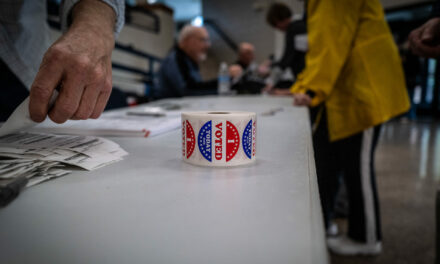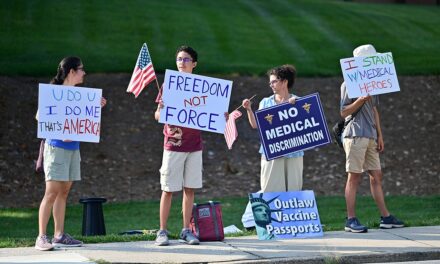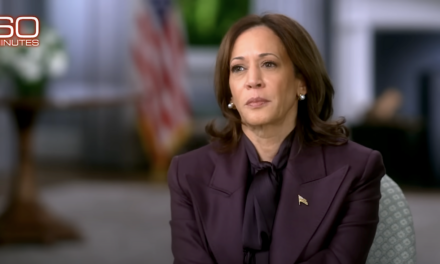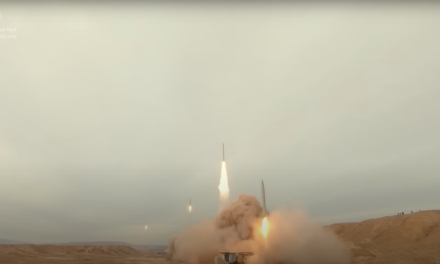We support our Publishers and Content Creators. You can view this story on their website by CLICKING HERE.
Last week, the NFL fined San Francisco 49ers star defensive end Nick Bosa $11,255 for displaying a “Make America Great Again” hat when he crashed the postgame, on-field interview of teammate Brock Purdy after their Oct. 27 victory over the Dallas Cowboys.
This isn’t the first time that the NFL has fined a league employee for making a right-wing political statement. In 2022, Washington Commanders Defensive Coordinator Jack Del Rio was fined $100,000 because he referred to the riot at the Capitol on Jan. 6 as a “dustup.” Jan. 6 may not have been a “dustup,” but should an employee be fined $100,000 because he mischaracterized it as such? Is there no freedom of speech left in the NFL?
Many people have compared Bosa’s political statement to the actions of former 49ers quarterback Colin Kaepernick, who knelt during the National Anthem before every game in 2016 in protest of the highly publicized police shootings of black men that summer. People on both sides assert that there is hypocrisy on display in the differing reactions to these two political stunts.
Some claim the NFL is hypocritical for fining Bosa for his political statement while never fining Kaepernick for his political protest of the National Anthem. (In fact, the NFL paid Kaepernick millions to settle a lawsuit in which he asserted that owners were colluding to keep him out of the league.) Others have accused NFL fans of being racists because of the collective outrage at Kaepernick’s political protest before the game while remaining relatively quiet about Bosa’s political statement after the game.
But fans were not outraged because Kaepernick made a political statement or because of the substance of that statement — they were outraged because of when he chose to make that statement. Kaepernick chose to co-opt the National Anthem to promote his own political agenda. The playing of the National Anthem is supposed to be a moment for everybody at the stadium, both teams and every fan, regardless of their political beliefs, to come together and unite as one — as Americans.
It is the moment when we are to find common ground and focus on what unites us, not what divides us. Even though we may be enemies on the field, we are all Americans. That moment should not be exploited for political purposes. Kaepernick did just that, and the league looked the other way.
The NFL is also inconsistent when it comes down so hard against Bosa for his political message while not only allowing but promoting players putting political messages on the back of their helmets. Throughout the course of an NFL game, the fans watching on TV will see messages like “Black Lives Matter,” “End Racism,” “Say Their Stories,” or “It Takes All of Us” printed on the player’s helmets. The NFL has even painted these messages on the backs of the end zones for all to see. So it becomes very murky when the NFL fines Bosa for wearing a hat with a political message on it after the game when the NFL promotes political messages on helmets during the game.
It is not that the NFL wants to remain apolitical — the league fully embraces the politics that consume the country every four years. For weeks leading up to this year’s election, fans had to sit through numerous public service announcements in which NFL players told their fans to go out and vote, that it is their civic duty. In 2020, stadiums around the league in Seattle, Indianapolis, Los Angeles, Atlanta, Charlotte, Detroit, Houston, and Philadelphia were used as voting centers for the presidential election. The league has no problem wading into politics, so why did it fine Bosa?
The answer to this discrepancy is found in the rule that the league claims Bosa violated. Rule 5, section 4, article 8 of the NFL rulebook states: “Throughout the period on game day that a player is visible to the stadium and television audience (including in pregame warm-ups, in the bench area, and during postgame interviews in the locker room or on the field), players are prohibited from wearing, displaying, or otherwise conveying personal messages either in writing or illustration, unless such message has been approved in advance by the League office.”
So, the NFL wants to pretend that there is freedom of speech as long as the speech in question is “approved in advance by the League office.” Controlled speech is not “free speech.” The NFL only wants to give the appearance of allowing the players freedom of expression while controlling which messages can be expressed and which can’t.

 Conservative
Conservative  Search
Search Trending
Trending Current News
Current News 





